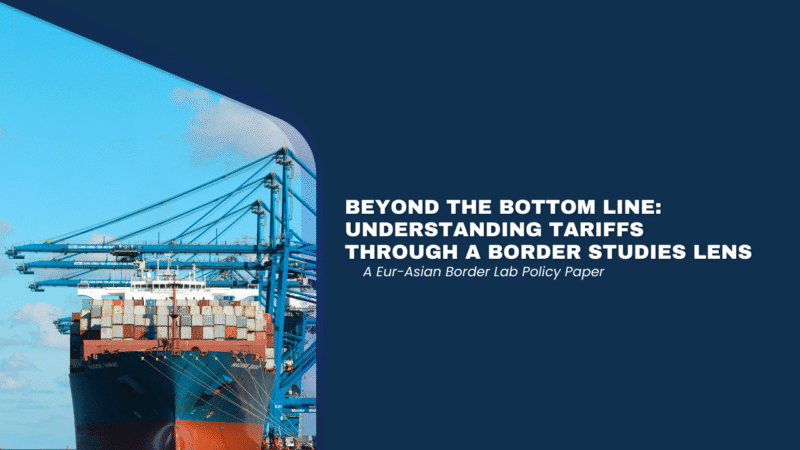
As global trade disputes intensify, tariffs are increasingly in the spotlight. But there is more to tariffs than just being technical economic tools. This Eur-Asian Border Lab policy paper applies a border studies lens to tariffs, showing how they generate symbolic, political, and cultural effects that extend far beyond market outcomes. By drawing on recent case studies, from US–Canada trade tensions to the Brexit Northern Ireland Protocol, the paper highlights the broader consequences of tariffs for policymakers and practitioners.
Key points
- Tariffs are not merely economic instruments; they function as symbolic and social tools, influencing identity, mobility, and sovereignty.
- Trade disputes produce ripple effects – cultural, political, and regional – that extend far beyond immediate fiscal impacts.
- Policy design must anticipate broader consequences, integrating negotiation, coalition-building, and domestic support alongside economic measures.
Keywords: Tariffs; Border Studies; Trade Policy; Non-Tariff Barriers; Cross-Border Governance